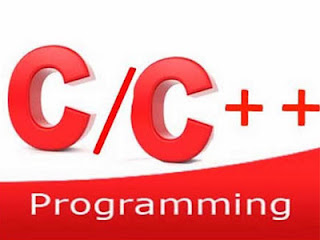Best C++ training in Delhi
Every
program takes some input and then generates the processed data as output. Every
programming language provides the facilities for handling input and output
operations. C++ is practically unique in its approach to input/output
operations.
We
are familiar with cout and cinthat use << and >>
operators for output and input operations.
 |
| C++ training in Delhi |
The
coutand cin are defined in C++’s standard header file iostream.h.
We
will talk about some console I/O functions that C++ inherits from its base
language C. Console I/O functions perform input from the standard input device
and output to the standard output device of a system.
Header Files and Their Purpose
We
know that functions are not available as keywords in C++ rather they are
available under C++ library header files.
The
header files provide declaration of function prototypes.
“A
function prototype is a declaration that specifies the function’s name, number
and types of arguments it takes and type of return value it provides.
To
make the use of predefined functions, the header file must be included in a
program so that the declarations of the functions become available in that
program.
#include Directive
The
#include directive instructs the compiler to read another file and include that
file under the current file. After including the specified file, the compiler
compiles the total code . # include is called the pre-processor directive which
instructs the compiler in the pre-processing stage. A pre-processing stage is
the stage before the actual compilation of the program code.
A
header file’s may be included in two ways as shown below:
#include<iostream.h> //from standard include directory
#include “myheader.h” // from current
directory
Benefits of Header Files
The
two major safeguards for using header files are:
·
The same declarations are made available to the programs that
include header files.
·
Should a declaration require updating, only one change to the
header file need to be made. The changes will be automatically reflected to
files that include the header file.
Unformatted Console I/O Functions.
The
console I/O functions we will cover are :getchar(),putchar(),gets()
and puts(). Out of these getchar()
and putchar() are single character functions and gets() and puts() are
string functions.
The
header files used for these functions are stdio.h,
therefore this file must be included in the program that uses this function.
We
use getchar(), which reads a
character from the keyboard, and putchar(), which prints a character to the
screen . Following statement will read a character using getchar() and stores
it in a variable ch.
ch=getchar();
The
getchar() waits for the character input until a character is typed at the
keyboard .Similarly , putchar() displays the given character on the screen at
the current cursor position.
Example
:
Char
ch;
ch
= getchar();
putchar(ch);
Whatever
is stored inside ch gets displayed on the screen.
gets() and puts() functions are used to read and write strings of characters
at the console.
The
gets function accepts a string of characters entered at the keyboard and places
them in the string variable mentioned with it: For instance:
Char
name[21]; // to store the string
gets(name);
the
above code declares a string namely name
which can store 20 valid characters.(width 21 specify extra character for ‘\0’
with which a string is always terminated).
The
function puts() writes a string on the screen and advances the cursor to the
newline.
puts(“check”);
We
will discuss about more functions in our next blog entry.
Skillyfy
provides best C++ training in Delhi. For more info visit www.skillyfy.com or
call :7827814720.
No comments:
Post a Comment